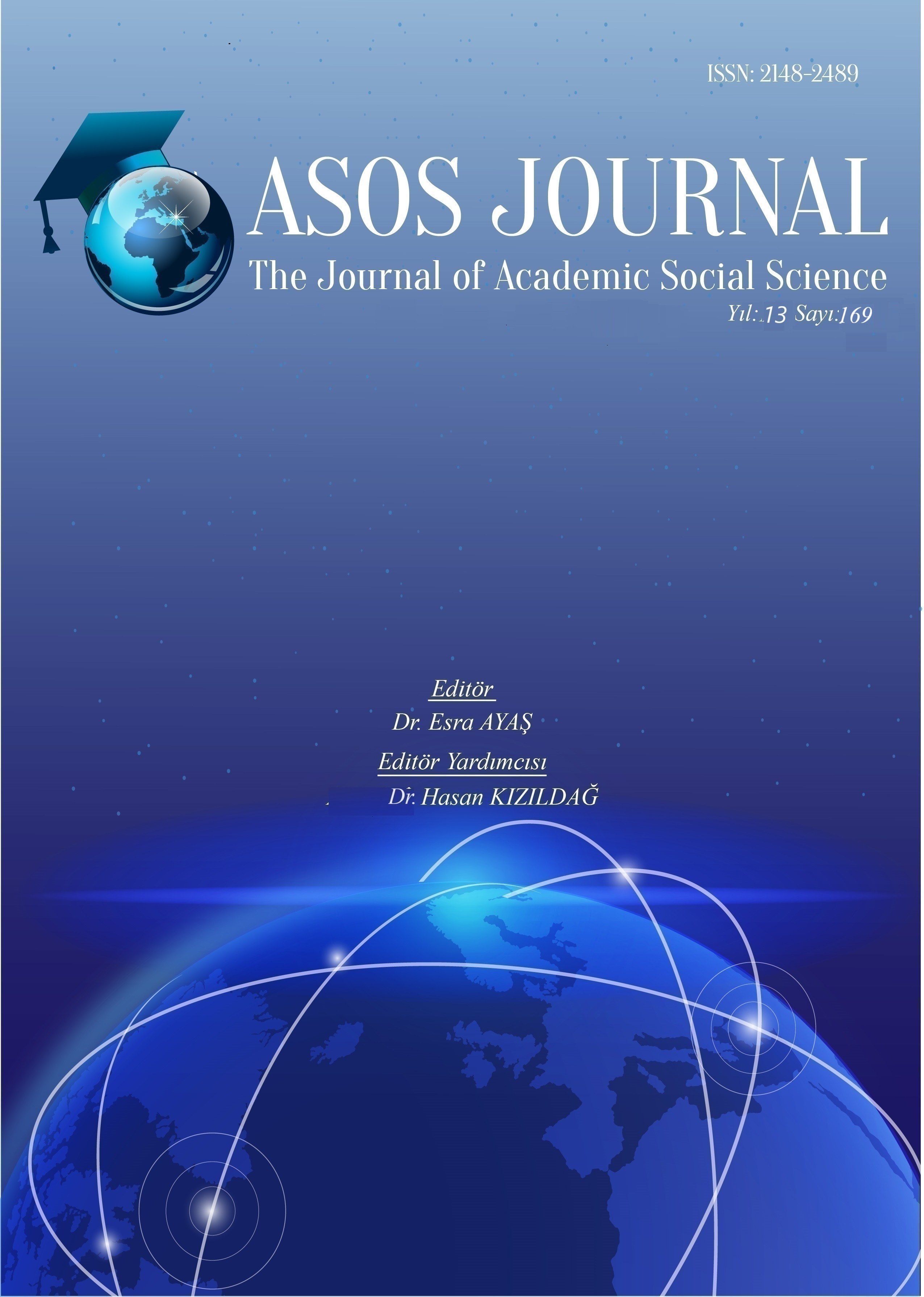Author :
Abstract
Makaledeki amacımız, Câbirî’nin Hz. Muhammed dönemi ve sonrası süreci kapsayan tarih okumasının siyaset teorisiyle olan bağlantısına dair kavramsal ve kuramsal bir arka plan sunmaktır. Câbirî’nin İslam Arap Siyasi Aklı kavramı kabile, ganimet ve akidenin belirleyiciliğinde yükselir. Üç ilkenin arka planında kanaatimizce ekonomizm ve kültürelizmin diyalektik ilişkisi bulunur. Biz bu kuramsal çerçevenin asabiyet-adalet diyalektiği olarak da ifade edilebileceğini savunuyoruz. Câbirî’nin Abbasileri İASA’nın üç ilkesiyle açıklanamaz görmesi de asabiyet adalet diyalektiğinin belirleyiciliğine işaret eder. Câbirî siyasi tarih okumasında davet kavramıyla Emevî ve Abbasi toplumlarının kuruluş ve çözülüş süreçlerini değerlendirir. Temel savunumuz, Câbirî’nin tarihsel okumasının adalet ve asabiyet birleştirici ve ayırıcı faktörlerinin diyalektiğinde geliştiğidir. Adalet ve asabiyet, ilki birleştirici ve ikincisi ayırıcı faktör olarak toplumsal yükseliş ve çöküş dinamiğini hareket ettirmekte ve bu hareketi toplumların doğalarında yerleşik yasaların zorunluluğu üzerinden gerçekleştirmektedir. Toplumların özgürlüğü yasaların farkındalık yaşayarak reforme edilmesine imkan vermektedir. Câbirî bütünleşik gözüken her olgunun aslında bir terkip olduğunu savunmaktadır. Terkibin bozulması adalet ilkesine aykırı durumların oluşmasına neden olacak ve asabiyetin çözülmesi üzerinden toplumların çöküş sürecini başlatacaktır.
Keywords
Abstract
Our aim in this article is to provide a conceptual and theoretical background for the connection between Jabiri's historical reading, encompassing the period of the Prophet Muhammad and its aftermath, and political theory. Jabiri's concept of Islamic Arab Political Reason is grounded in the determinants of tribe, booty, and creed. In our opinion, the dialectical relationship between economism and culturalism lies at the heart of these three principles. We argue that this theoretical framework can also be expressed as the dialectic of asabiyyah and justice. Jabiri's view that the Abbasids cannot be explained by the three principles of the Islamic Arab Political Reason (IASA) also points to the decisiveness of the dialectic of asabiyyah and justice. In his reading of political history, Jabiri evaluates the processes of establishment and dissolution of Umayyad and Abbasid societies through the concept of invitation. Our fundamental argument is that Jabiri's historical reading develops within the dialectic of the unifying and dividing factors of justice and asabiyyah. Justice and asabiyyah, the former as a unifying and the latter as a dividing factor, drive the dynamics of social rise and fall, and this movement is realized through the necessity of laws inherent in societies. The freedom of societies allows for the reform of laws through awareness. Jabiri argues that every phenomenon that appears integrated is actually a composite. The disruption of this composite will lead to situations that contradict the principle of justice and, through the dissolution of asabiyyah, will initiate the process of societal collapse.





